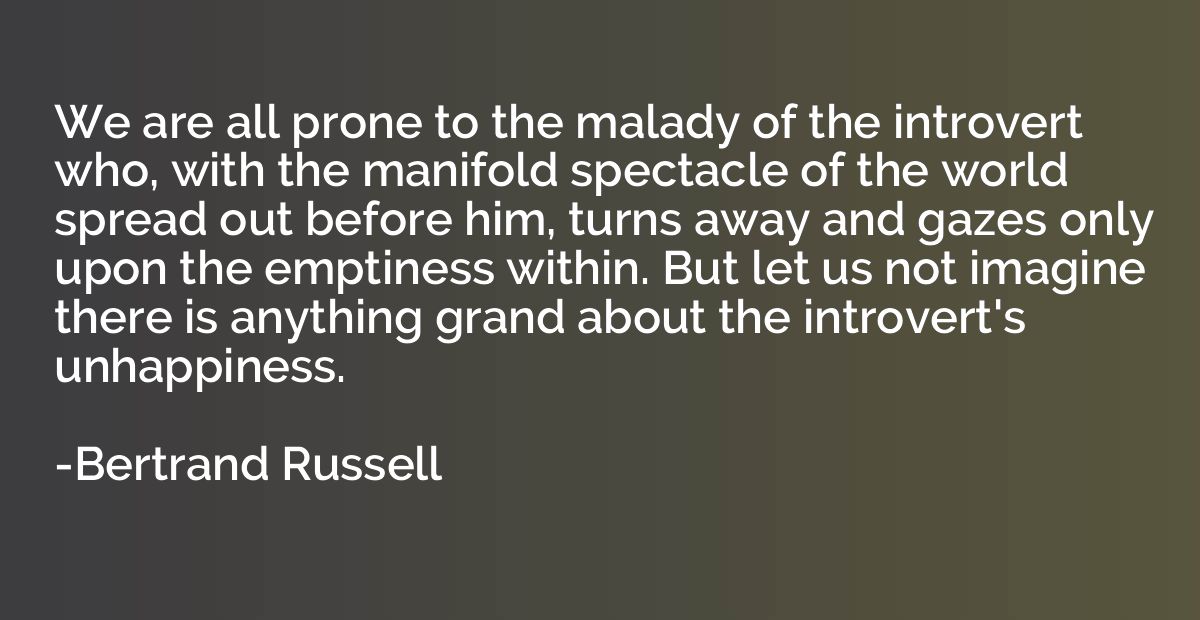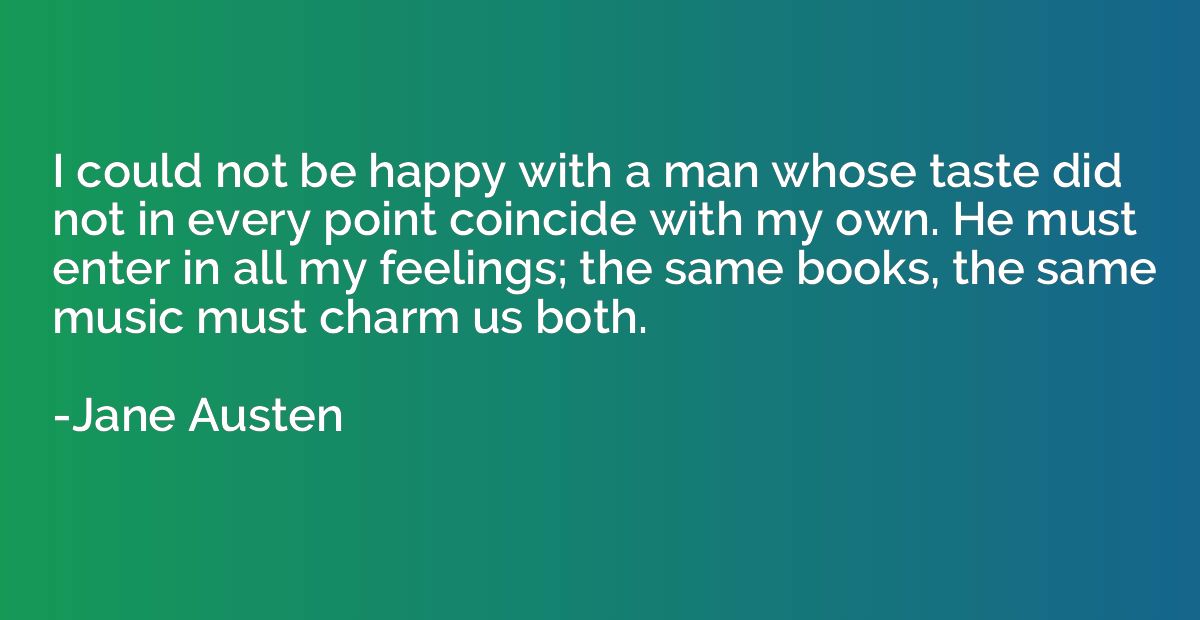Quote by Bertrand Russell
We are all prone to the malady of the introvert who, with the manifold spectacle of the world spread out before him, turns away and gazes only upon the emptiness within. But let us not imagine there is anything grand about the introvert's unhappiness.

Summary
This quote highlights the tendency of introverted individuals to overlook the vibrant world around them, choosing instead to focus on their inner thoughts and emotions. It cautions against romanticizing the introvert's unhappiness, suggesting that there is no inherent nobility or grandeur in it. In essence, the quote discourages valuing isolation and self-absorption as superior states of being, urging individuals to appreciate the richness of life outside themselves.














